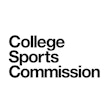
The Southeastern Conference is cracking down on the practice of flopping in football, as teams are allegedly faking injuries to slow down opponents' offenses.
According to the Columbia Missourian, SEC Commissioner Greg Sankey sent a letter to league coaches and athletic directors, telling them to “stop any and all activity related to faking injuries to create timeouts.”
The SEC has also modified an existing rule that will allow it to increase the consequences for coaches and programs that do violate the rule. Now, if the national coordinator for football officiating says it’s more likely than not that a feigned injury occurred, then it will be considered a feigned injury and subject to a penalty.
“Your team should be prepared to compete fairly under the rules of the game,” Sankey wrote.
Prior to Friday's rule adjustment, teams were required to send video that they believe indicates flopping, but now the SEC office can request a video if warranted.
“When defending against a 'hurry up' offense, you are to use the allocated team timeouts if you need to stop play or you may allow the play to continue with the personnel and defensive play call in place,” Sankey wrote. “When on offense, if the play clock is running out, you are to use a team timeout or accept the delay of game penalty.
“Creating injury timeouts in these circumstances is not acceptable and is disrespectful to the game of college football.”
If an injury cannot be confirmed with medical evidence, the SEC can implement the following fine structure:
- For a team’s first finding of a feigned injury, the head coach will receive a public reprimand and a financial penalty of $50,000 will be assessed.
- For a team’s second finding of a feigned injury, the head coach will receive a public reprimand and a financial penalty of $100,000 will be assessed.
- For a team’s third finding of a feigned injury and any subsequent findings, the head coach will receive a public reprimand and a suspension for the team’s next contest.
- If any other staff member is found to have been involved in signaling, encouraging or directing a feigned injury, that individual will be subject to the same accountability measures presented in this memorandum, including public reprimand, financial penalties and suspensions.





































